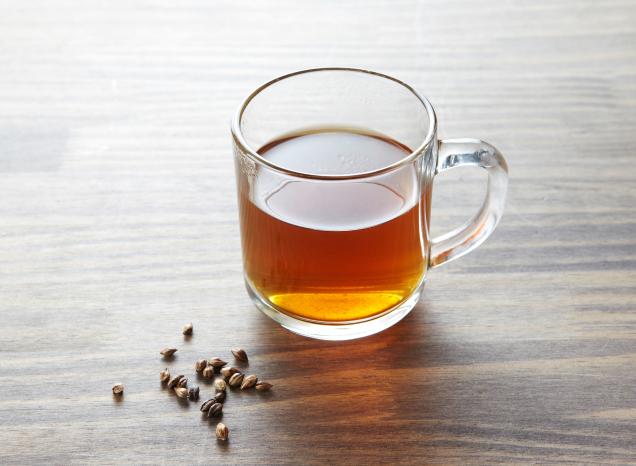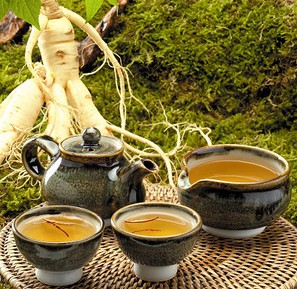Yes, there’s the multi-step skincare routine and a focus on skincare from a very young age. But is it possible that the traditional Korean diet is the key to that luminous K-beauty skin? Let’s dig in.
South Koreans eat their way to beautiful skin, a fit body, and overall good health. Generally, Korean cuisine consists of grilled meats, fish, steamed and fermented vegetables, rice, and different teas. Traditionally, the Korean diet is high in vegetable intake, low in fat consumption, limits red meat consumption, and uses many medicinal herbs, according to the Korea Food Research Institute.
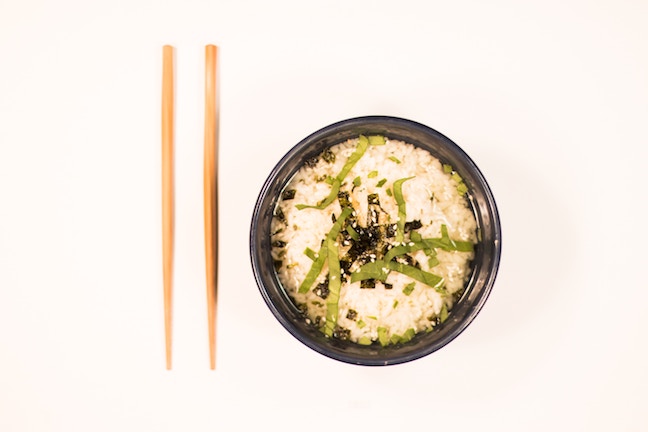
Although these are the general characteristics of the Korean diet, there are specific aspects that reap immense health and beauty benefits. We asked three dieticians to break it down for us. Interested? Read on.
Kimchi is king (along with other fermented foods)
According to The Nutrition Society, kimchi is the most consumed vegetable and the second most consumed food in South Korea. It is served with virtually every meal, and with good reason. Fermented foods have superpowers.
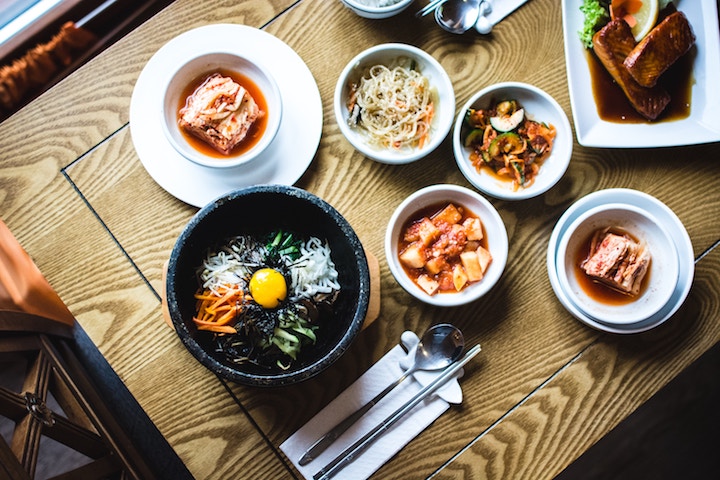
“Fermentation is the process when bacteria or yeast feed on the natural sugars of food,” explains Stacy K. Leung, a registered dietitian and yoga instructor based in New York City. “Through fermentation, a variety of living microorganisms are created, some of which are probiotics. Probiotics play a role in gut health because it helps the body fight against harmful bacteria.”
“Essentially, this breakdown process helps improve digestion, increase availability of vitamins/minerals, and promote a healthy microflora balance in the gut,” says Megan Hagar, a New York City-based holistic registered dietitian.
Kimchi contains these benefits and more. It regulates cholesterol, aids in weight loss, boosts the immune system, and helps to treat atopic dermatitis.
Seaweed is a superfood
Seaweed is an ancient Korean health food. Seaweed soup, called miyeokguk, symbolizes good health and is often consumed at birthdays and after giving birth in South Korea. There are many reasons why seaweed should be embraced by Western culture, too.
“Sea vegetables contain a wide variety of minerals since they contain all the minerals in the sea,” explains Hagar. “Sea vegetables also have other components called sulfates that have anti-inflammatory, antioxidant, and anti-cancer properties.”
“Seaweed brings many health benefits including Vitamin K, C, and calcium,” adds Alana Kessler, the dietician behind wellness micro boutique Be Well By Alana Kessler. “But its main impact lays in its iodine content. Iodine deficiency can affect the thyroid and lead to fatigue, muscle weakness, and high cholesterol.”
South Korea loves seaweed so much that it has produced seaweed farms that can be seen from space. Besides soup, seaweed is eaten as a side dish (banchan), to wrap rice rolls (gimbap), and in the form of crisps.
South Koreans drink tea the way Americans drink soda
Have a problem? There’s a tea for it. South Koreans are avid tea drinkers. Although they drink tea for pleasure and taste, South Koreans select their tea based on its benefits.
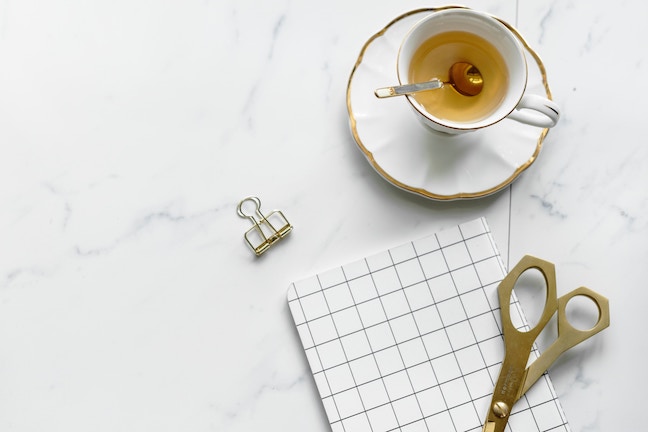
“Depending on what kind of tea is consumed, many have antioxidant benefits,” says Hagar. “In addition to antioxidants, non-caffeinated teas also provide a good source of hydration. The act of drinking a warm tea can also be calming, reducing stress levels and therefore improving overall health.”
Popular teas in South Korea include barley, ginseng, and green. According to these dieticians, each one reaps major health benefits.
Barley
Barley tea is made by brewing roasted barley seeds. Naturally, it is caffeine-free. This nutty flavored, slightly bitter beverage is a staple is South Korea with good reason.
“Barley tea is an amazing digestive in addition to being an antimicrobial, potent antioxidant, and circulation enhancer,” says Kessler. “There is some evidence that barley tea is an anticoagulant, thinning the blood so it maintains its fluidity, assisting in keeping the heart and kidneys functioning properly.”
Ginseng
Ginseng tea is made from the ginseng plant’s roots. This herbal tea is praised for its ability to help the body cope with stress.
“Ginseng is considered an adaptogen because of its ability to help regulate the body’s response to stress,” says Leung. “Studies show that ginseng may also be helpful in lowering blood sugar and cholesterol.”
Green Tea
This beverage is made from the leaves of the Camellia sinensis plant. Its rich antioxidant content reaps major beauty and health benefits. In South Korea, green tea is so popular, one of the country’s biggest beauty brands, AmorePacific, owns its own green tea plantation and museum on Jeju Island.
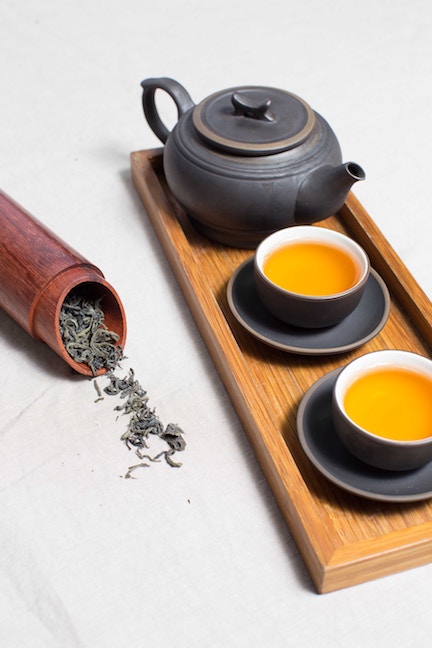
“Green tea is a powerhouse of antioxidants and can help protect the skin and organs from environmental toxins, pollution and internal ROS [reactive oxygen species],” says Hagar.
Soups and stews are collagen rich staples
Hearty hunks of collagen come with virtually every Korean meal in the form of soup or stew. Chicken, seafood, beef, and bone broths are popularly used as bases. Popular spices include a red pepper paste called gochujang and the signature seasoning yangnyeom (a combination of garlic, green onions, red pepper, and ginger). The bulk are a heap of vegetables (specifically legumes) and a small portion of meat. But what is collagen and is it beneficial for one’s superficial appearance?
“Collagen is the most abundant protein in the human body and is the main structural component of connective tissue,” explains Leung. “Collagen is responsible for many things including the health and strength of cartilage, skin, and bones. While consuming a diet rich in collagen has been touted to improve skin health, the research is limited at this time.”
However, there is some research that has shown collagen supplements can be beneficial to certain age groups.
“Research has shown in studies on middle-aged women that taking a collagen supplement did in fact help reduce the appearance of fine lines and wrinkles. However, studies done on younger women did not show any improvement,” says Hagar.
So why might collagen help older women? Kessler offers some insight. “As we age our skin and connective tissue begin to lose its elasticity and lubrication. This change can lead to osteoarthritis and wrinkles in the skin.
“Collagen supplements will bring a renewed life to the joints and skin providing improved joint and tendon flexibility and strength as well as improved circulation leading to an enhanced skin texture and firmness,” she adds. “Collagen from fish peptides have the best bioavailability and have shown best results when combined with hyaluronic acid and vitamin C.”
Bonus! One Korean alcoholic beverage can actually be beneficial for your skin
Makgeolli is a slightly sweet rice wine that contains about 6 to 8 percent alcohol by volume. This alcoholic beverage is rich in probiotic cultures, which are beneficial for the digestive system and the skin. It contains amino acids and vitamin B, which help to firm and brighten skin. But how often should one consume this alcoholic beverage?
“It is true that vitamin B, specifically vitamin B3, can treat acne and blemishes and that probiotics are good for gut health,” says Leung. “However, makgeolli is an alcoholic beverage and thus, should be limited like with beer, wine, or liquor. With a 6 to 8 percent alcohol content, the recommended serving size of makgeolli is up to one 8-ounce serving for a woman and two 8-ounce servings for men.”
Final Thoughts
When most people think of Korean beauty, they think of shiny, healthy hair and a clear, radiant complexion. The K-beauty craze that has swept swiftly through the West primarily focuses on the use of topical products to achieve this desired aesthetic.
But Korean beauty is the holistic practice of nurturing and enhancing the skin, hair, and nails. The root of K-beauty is the Korean diet. We need the proper nutrients to feel and look good. So feed your body. Feed you skin, hair, and nails. Nothing feels or looks better.
Loading...
